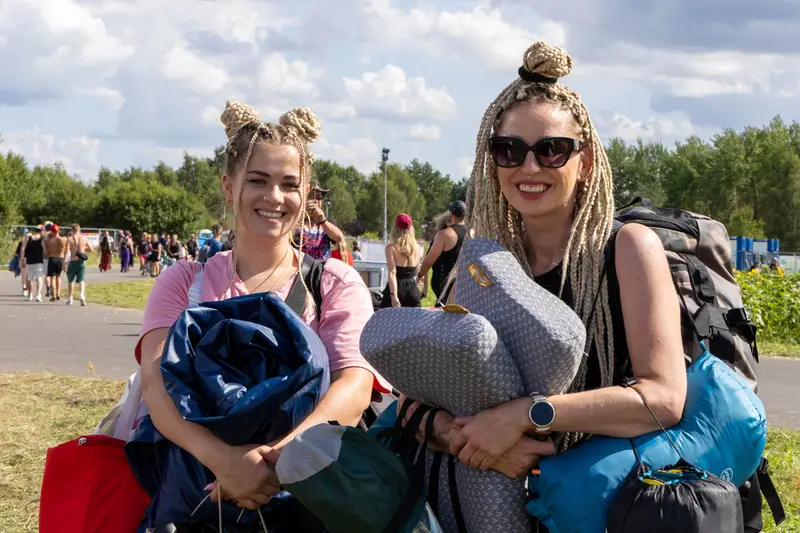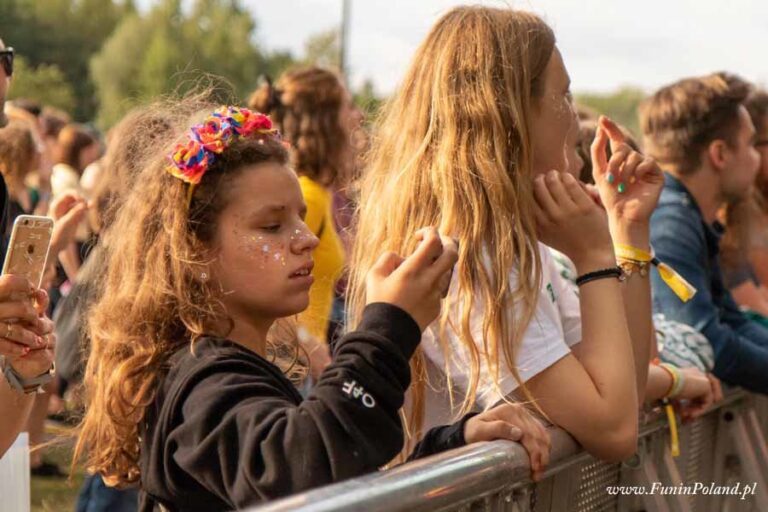
Strona główna » News » Talk about Soul Music
We had a great pleasure to interview Durand Jones (singer) and Aaron Frazer (drummer) of The Indications band before their concert on the first day of OFF-Festival Katowice.
How would you describe to the unaquainted where the term ‘soul music’ comes from and the relations between this music and its name?
DJ: I wondered for a very long time why did they call this music ‘soul music’, why did they relate it to the part within ourselves that is unexplainable, like spirit. What I came to think of is that black America during the time really didn’t have control over politics, they didn’t have wealth, so they didn’t have power nor education… they didn’t have control over a lot of things. But what they did have control of was their soul inside. And so you go to the States, you see soul food restaurants, you listen to the music like James Brown, who says ‘soul power’. And so I felt that the reason why they call this music ‘soul’ is because they felt an ownership to it, they felt that it was very deep and something really special inside. It’s something that can live with you when you’re sad, it can rejoice you when you are happy, you can go dancing on it, you can console a loved one… It brings about a feeling that comes from no other place than the soul. I feel like our music definietely taps into that space. We talk about love in different ways: platonic love, relationship love, love lost… We also talk about sociopolitical conciousness things – things that we want to change in America, things that we feel really deep inside, that are passionate to us. That’s why I feel they call it ‘soul music’.
Could you list your soul music icons from the 70s?
DJ: I really love what Stevie Wonder was doing in the 70s. I’ve been listening to a lot of his stuff lately, he is someone very impactful to me.
AF: I would also add Curtis Mayfield – a big influence, Smoky Robinson and Eddie Kendricks.
While you’re creating music do you focus more on adapting soul music to modern audiences or do you wish to preserve classic soul sound?
DJ: I think it’s our duty to push it forward. We stand on the shoulders of so many people that came before us. It’s our duty to not only embrace what they have done, but also to push it forward and bring it onto a new level. I feel like that’s what we are trying to do.
When it comes to coming up with new songs and their composition and production, how do you divide your work?
AF: We all bring ideas to the table. It’s primarly Durand, Blake and myself. We help each other shape the ideas. Maybe it starts with just a melody and somebody else has words. Durand may have a notebook with a hook in it, which might make me think of a verse to write. Sometimes somebody comes up with song that’s mostly finished. We do our own writing and we produce our own records – Blake and I produced our last album American Love Call.
Assuming that the five of you need to „pass the ball”, so to speak, between each other, in order to polish a song that you’re working on, have you ever faced the problem where the result was no longer true to the original vision you had?
DJ: I don’t think so. There’s definetely been songs that we worked on that we weren’t feeling at the time, but for me as a songwriter – I don’t throw anything away. I feel like if it’s not useful here and there, then maybe I can just put it in my bag and wait for the right time for it to come back.
AF: We’ve also had songs that start in one place and end up feeling very differently. Maybe the rhythm changes, maybe we try a different tempo…
DJ: Like What I Know About You.
AF: Totally, or Long Way Home. But that’s never been a problem. It’s that sort of fun of working in a group. You wind up arriving at a conclusion that you wouldn’t if you were by yourself.
Soul music can be both blisfull and bitter. As you said, on American Love Call you make forward refrences to current socioeconomic issues in United States. What made you raise your voice on this album?
AF: It’s time to say what you believe. It’s not time for subtelty in the United States right now. There is a real crisis, politically. We are facing crisis globally, environmentally. It feels like if you have any sort of platform, whether you are writing songs and people like them, or maybe you have a lot of Instagram followers – it’s time for all of us to say what we believe and fight for what we can. Time is of the essence.
DJ: There is a total legacy to it – people like Nina Simone, Marvin Gaye, Curtis Mayfield, Donny Hathaway. They’ve always been so proactive, speaking their truth, what’s going on in the climate, in the environment. It’s our duty to keep it going forward.
The current crisis is also a crisis of division within the American society. Do you think music could help mend differences?
DJ: It’s one of the things, but what I feel America has to do is really look at the root of their problems and why it’s so divided, why we’re so torn apart. Once we can really sit down and talk about that like civil human beings, maybe we can get someplace. I do believe that music can be a key to help us get there, though.
Considering that you have much more experience now, was production of American Love Call different from your first album?
AF: Definitely. There were a couple of big factors. We finally had a budget to work with, so there were things that we could accomplish, like having a string section, that we never even dreamed about while doing our first record. But we have also learned a lot from doing that first record on our own. Whether it was arranging harmonies or coming up with string melodies or just overall orchestration of parts, we were able to put those experiences to use and translate what was in our head to what we’re actually listening back to. It is a very special feeling to be able to do that.
We are very happy to be the first country in Eastern Europe to welcome you. Do you wish to carry on spreading soul music further on the east?
DJ: We would love to go all over the world with it, it would be amazing. It’s been very fun. Poland is cool, I dig it.

The most interesting events in Poland on summer. Concerts, Festivals and outdoor events. Jazz, Rock, Reagge, Rap, Hip-Hop, Beer and traditional polish food.